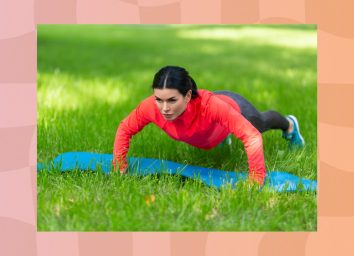One Sign You Need More "High Intensity" Walking, Says New Study
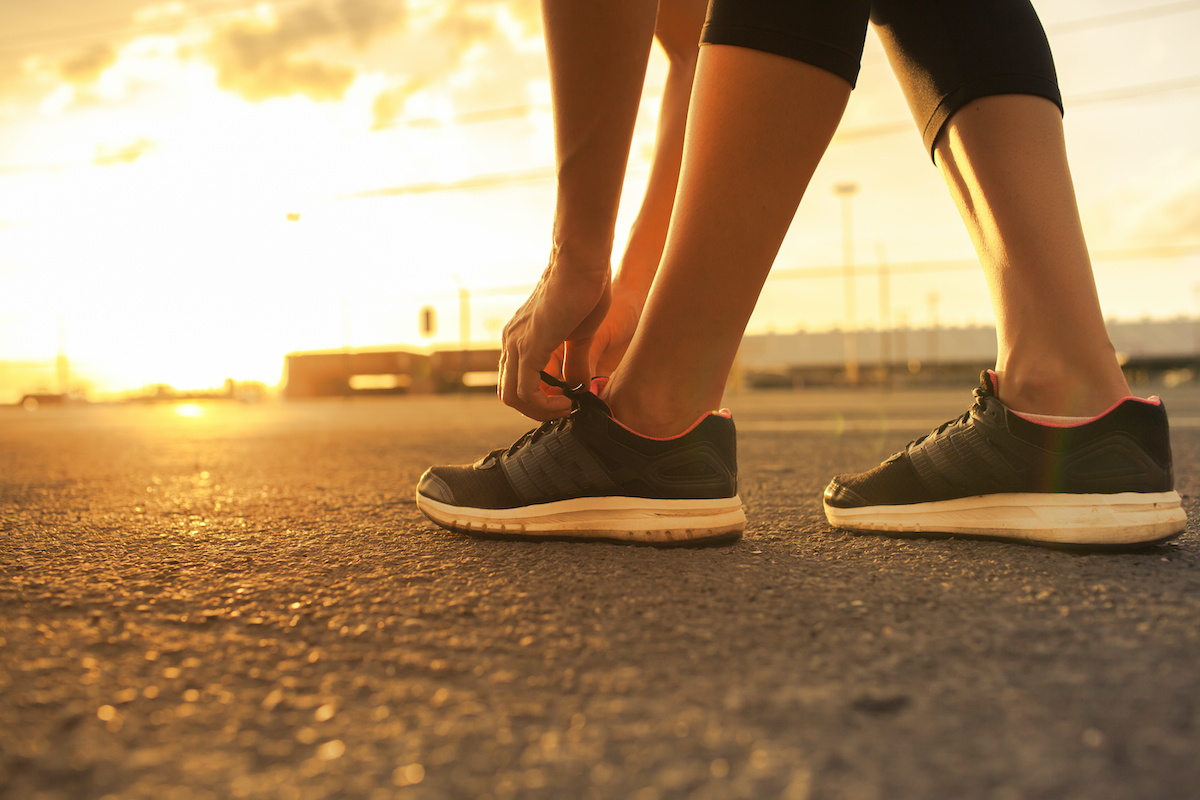
Every day, it seems, observers of the niche world of exercise science learn something new and exciting about walking for exercise. For instance, one new study published in the journal Clinical Rehabilitation found that stroke survivors who walked faster while performing a task such as talking—a process known as "dual-task walking"—were able to recover more quickly and regain their cognitive performance. Another study, published in published in the Journal of Happiness Studies, found that walkers who employed empathetic thoughts toward strangers—thinking things like "I wish for that person to be happy"—reduced their stress levels and made them happier people overall. Another study, published in the Journal of Transport and Health, found that people who walked "with purpose" not only walked faster and were healthier but actually felt healthier, too.
Now, a brand-new study published in JAMA reveals yet another benefit to walking. The catch? It requires people to walk at higher speeds. Read on for more about this study, and if you love to walk, make sure you're aware of The Secret Cult Walking Shoe That Walkers Everywhere Are Totally Obsessed With.
If You Have Peripheral Artery Disease (PAD), Walking Fast Is Super Helpful
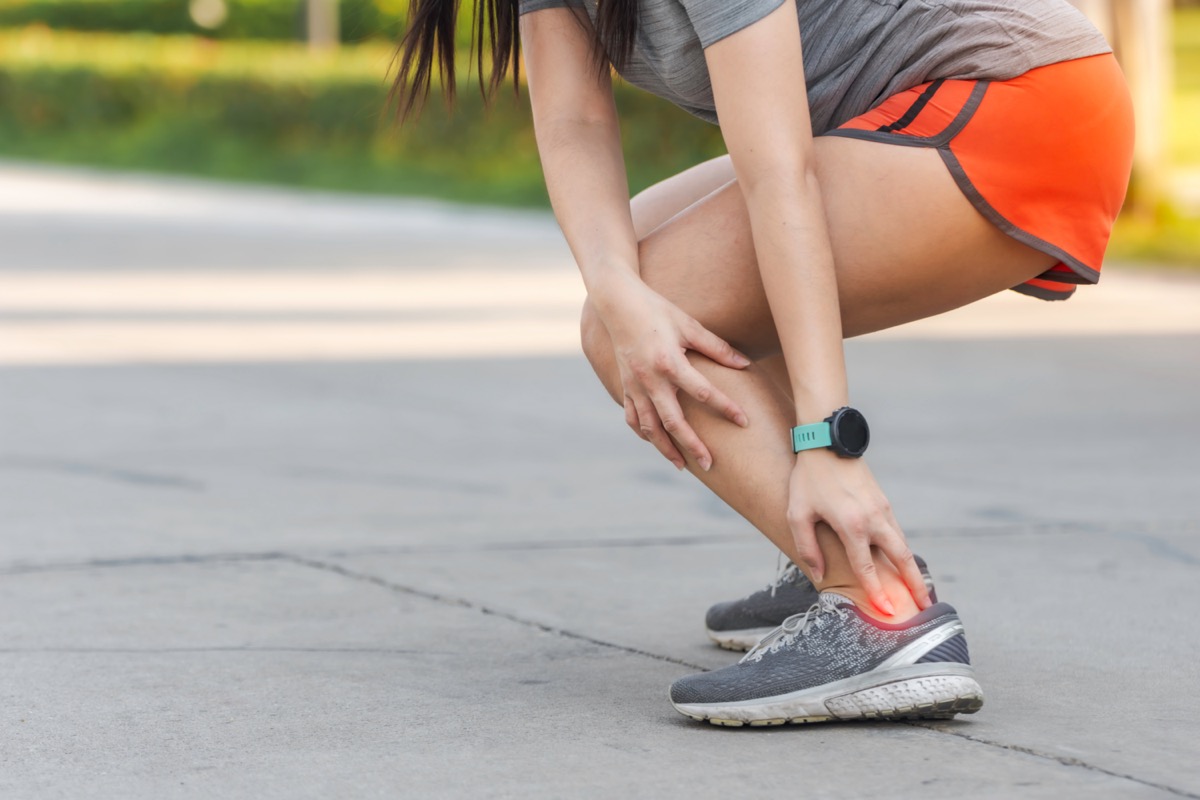
Peripheral Artery Disease (PAD), when your arteries narrow and your blood-flow to your limbs is reduced, is common among older people. According to the Mayo Clinic, "when you develop peripheral artery disease, your legs or arms—usually your legs—don't receive enough blood flow to keep up with demand. This may cause symptoms, such as leg pain when walking (claudication)."
Further symptoms include numbness, coldness in your extremities, soreness, and even erectile dysfunction in men. For the new study, which was conducted over the course of a full year, the researchers sought to figure out how walking can help assuage the discomfort associated with PAD. And for more on the benefits of walking, see here for The Secret Little Exercise Tricks That Will Extend Your Life.
No Pain, No Gain?

The research teams took 305 people who suffer from PAD and had them perform a single walking test: To walk as far as they could in 6 minutes. Then, the study authors assigned them to one of two walking programs: a low-intensity one and a high-intensity one. Then, for a full year, both of the walking groups walked for upwards of 50 minutes every day for 5 days per week. Given the pain associated with PAD, the slower-speed walkers were asked to walk at pace that was considered "comfortable." The higher-speed walkers were asked to walk at a speed that actually caused some pain—whether it was moderate or severe pain. At the end of the study, all of the walkers re-did the original walking test to see how they had progressed.
Here's What They Discovered
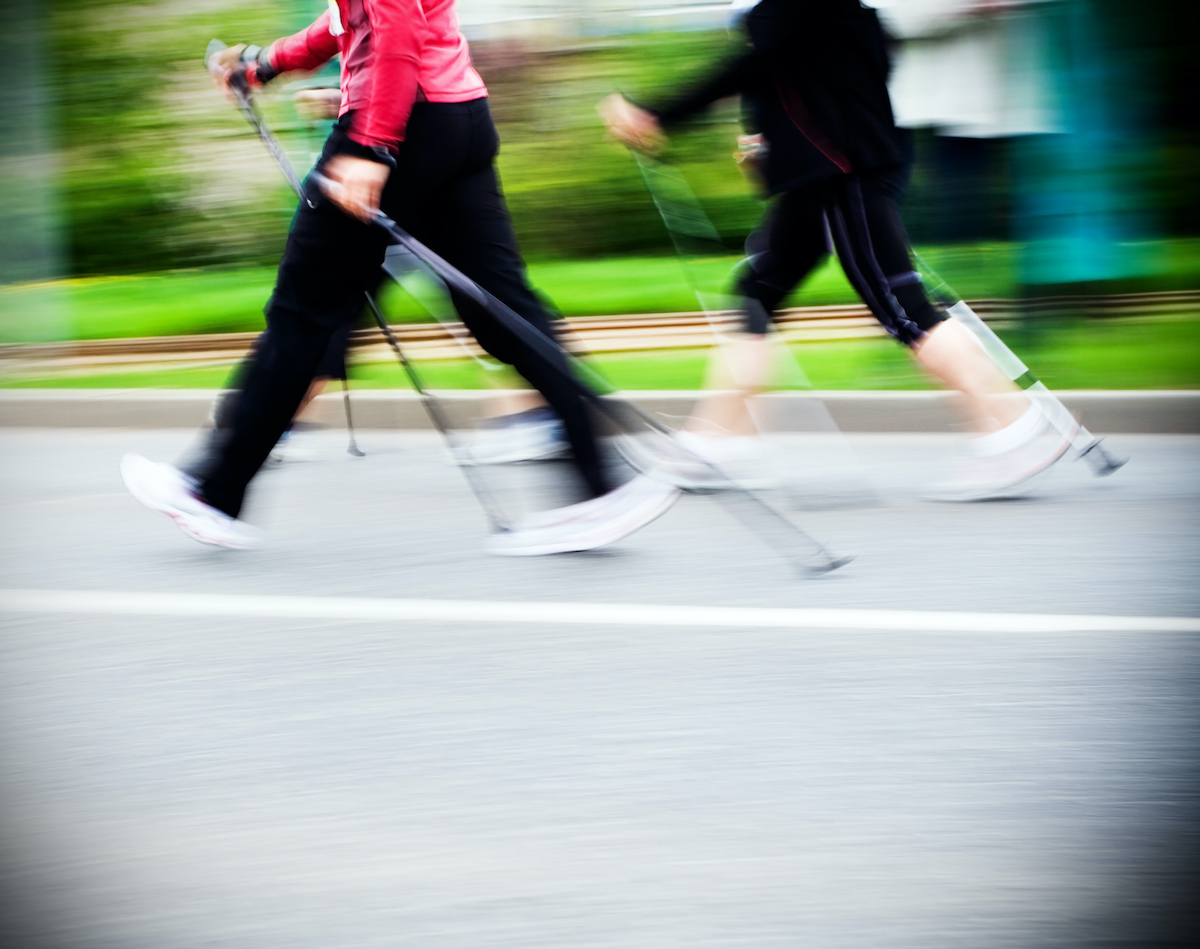
The walkers who walked faster were able to walk nearly 40 yards farther than they could before their high-speed training regimen. The lower-speed walkers found that they covered less distance than before (by 7 yards). "These findings do not support the use of low-intensity walking exercise for patients with PAD," concludes the study.
Furthermore, the researchers speculated that walking at higher speeds, even though it was more painful, may help their arteries develop new blood vessels to help the blood flow to their muscles. And for some great walking tips, see these Secret Tricks for Walking for Exercise, According to Walking Experts.
What It Means for You
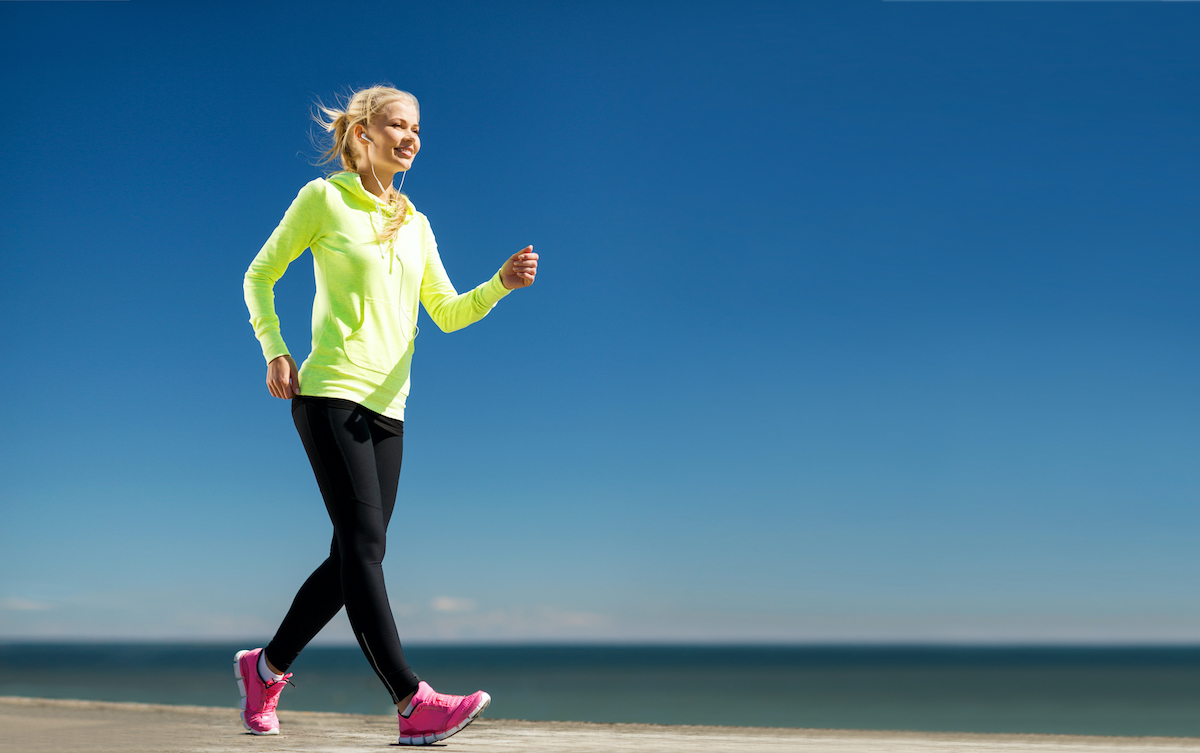
If you're an older individual who suffers from PAD, the findings are clear: Walking faster and embracing the resulting discomfort may be a wise move as you work to recover. But the study is simply the latest to support the health benefits of fast walking. For instance, one big study published in 2015 in The American Journal of Clinical Nutrition found that a brisk 20-minute walk every day could reduce your risk of death by upwards of 30%.
In addition to that, you'll also burn more calories, feel an energy boost, help your brain, and even sleep better. For more on those benefits and others, read up on What Walking for Just 20 Minutes Does to Your Body, Says Science.



